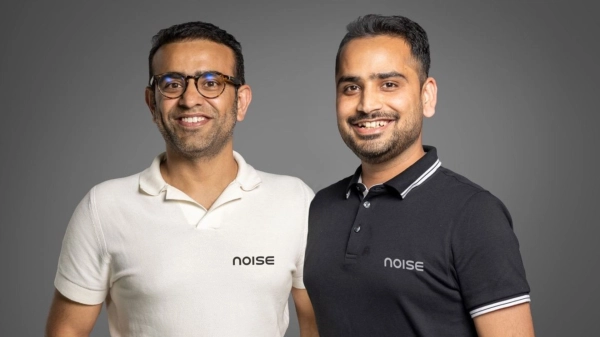Tech-backed Healthcare Advancement Needs Combination of Funds, Innovation & Policy

"For real impact, healthcare problems need to be clearly defined and addressed through continuous co-creation between startups and healthcare providers," Dr Jagannathan asserted.
Tech-driven advancement in healthcare is not a mere far-fetched idea, rather it's achievable and actionable. However, this needs coming together of different factors-funds, innovation & supported regulation. This was deliberated engagingly in a panel discussion hosted by Digital Health News recently in Mumbai.
On May 31, 2024, the DHN Forum Mumbai hosted a pivotal panel discussion at the Taj Lands End, Bandra, addressing "How Big Tech & Healthcare Venture Funds Will Affect Healthcare in India."
The panel brought together industry leaders Neil Gomes, chief digital officer of AmeriHealth; Feby Abraham, EVP and chief of strategy and innovation at Memorial Health; Dr Divleen Jeji, India Lead for Google Health; and Dr Laxmi Jagannathan, CEO of the Innovation Centre at IIIT-B, to explore the profound influence of technology and venture capital on the Indian healthcare system.
(From L-R): Neil Gomes, CDO of AmeriHealth; Dr Laxmi Jagannathan, CEO of the Innovation Centre at IIIT-B, Vishnu Saxena, Founder and CEO of DHN; Feby Abraham, EVP and chief of strategy and innovation at Memorial Health; Dr Divleen Jeji, India Lead for Google Health.
The Influence of Big Tech in Healthcare
The session began with Feby Abraham providing a detailed analysis of Big Tech's role in the US healthcare sector and its potential implications for India.
Abraham categorized the influence of Big Tech into three primary areas: data and storage, analytics and applications, and healthcare delivery.
"Companies like Google, Microsoft, and Amazon have predominantly focused on data and analytics, while Apple and Amazon are making significant strides in healthcare delivery," he explained.
Abraham highlighted the mixed success of Big Tech in the US, citing examples such as Apple's integration with health systems via its HealthKit and Microsoft's advancements in physician burnout reduction through Azure and Nuance.
However, he also pointed out the challenges these companies face in adoption and market penetration. "Despite their technological advancements, their go-to-market strategies often fall short, leading to uneven adoption," he said, emphasizing the need for better collaboration with healthcare providers to ensure practical implementation of these technologies.
Feby Abraham, EVP and chief of strategy and innovation at Memorial Health during session on Big Tech and Healthcare venture funds at DHN Forum Mumbai.
Insights from Neil Gomes
Neil Gomes, leveraging his extensive experience in both the US and India, discussed the parallels between digital transformation in education and healthcare.
"The transition seen in digital education, enabled by giants like Google and Microsoft, offers valuable lessons for healthcare," Gomes noted.
He recounted his work with Jefferson Health in the US, where partnerships with tech companies led to significant advancements in medical applications.
Gomes emphasized the necessity of such partnerships for scaling innovations. "These collaborations allowed us to develop and implement AI-driven diagnostic tools not just in the US, but also in India and South Africa, addressing local healthcare challenges," he said.
He advocated for increased funding and support from tech giants to accelerate the digitization of healthcare, noting the financial constraints faced by healthcare organizations despite their significant revenue streams.
Neil Gomes, CDO of AmeriHealth during session on Big Tech and Healthcare venture funds at DHN Forum Mumbai.
Google Health’s Vision for India
Dr Divleen Jeji highlighted Google Health's strategic focus on India, stressing the importance of scale and public sector engagement.
"India's unique structure and the rising prioritization of health by the public sector create a fertile ground for impactful tech interventions," she stated.
Google’s approach, according to Jeji, involves empowering consumers with authoritative health information through platforms such as YouTube and Search and developing local language content to enhance accessibility.
Jeji also discussed Google's enterprise initiatives, such as the Open Health Stack, which promotes data interoperability and FHIR compliance.
"We're committed to partnering with national and state governments to facilitate digital transformation in healthcare, ensuring it is not seen as an unachievable journey," she said.
Jeji underscored the importance of working with local developers and healthcare providers to build and implement scalable health solutions.
Dr Divleen Jeji, India lead, Google Health during session on Big Tech and Healthcare venture funds at DHN Forum Mumbai.
The Role of Startups & Venture Funds
Dr Laxmi Jagannathan brought a unique perspective from the intersection of academia and innovation. She emphasized the agility of startups in driving healthcare innovation, suggesting that big tech companies should collaborate more closely with startups to foster rapid advancements.
"The best way to make elephants dance is to make them dance through ants," Jagannathan quipped, illustrating how nimble startups can lead the way in healthcare innovation.
Jagannathan pointed out that while big tech companies often offer initial support through technology and resources, there is a gap in sustained collaboration.
"For real impact, healthcare problems need to be clearly defined and addressed through continuous co-creation between startups and healthcare providers," she asserted.
She also highlighted the availability of government funding for healthcare entrepreneurs in India, noting that the ecosystem needs better integration to facilitate real-world applications and scalability of healthtech innovations.
Dr Laxmi Jagannathan, CEO, Innovation Centre, IIIT-B during session on Big Tech and Healthcare venture funds at DHN Forum Mumbai.
Conclusion
The panel at the DHN Forum Mumbai underscored the transformative potential of Big Tech and venture funds in Indian healthcare.
With strategic collaborations, scalable innovations, and a focus on practical applications, technology can significantly improve healthcare outcomes.
However, achieving this requires a concerted effort from all stakeholders—big tech companies, startups, healthcare providers, and government bodies.
As the discussion concluded, it was clear that while challenges remain, the roadmap for a tech-driven healthcare revolution in India is both promising and actionable.
Stay tuned for more such updates on Digital Health News


















